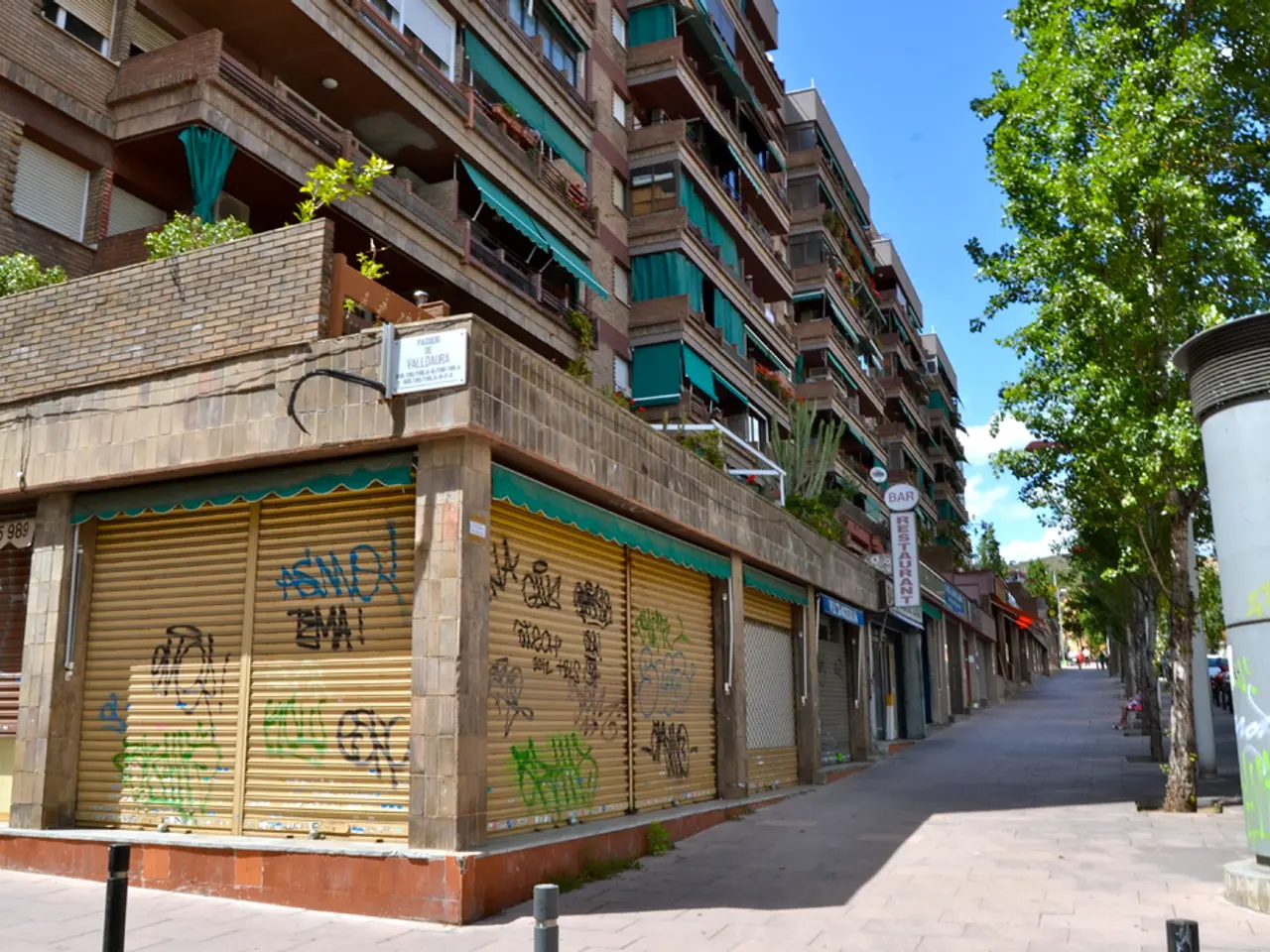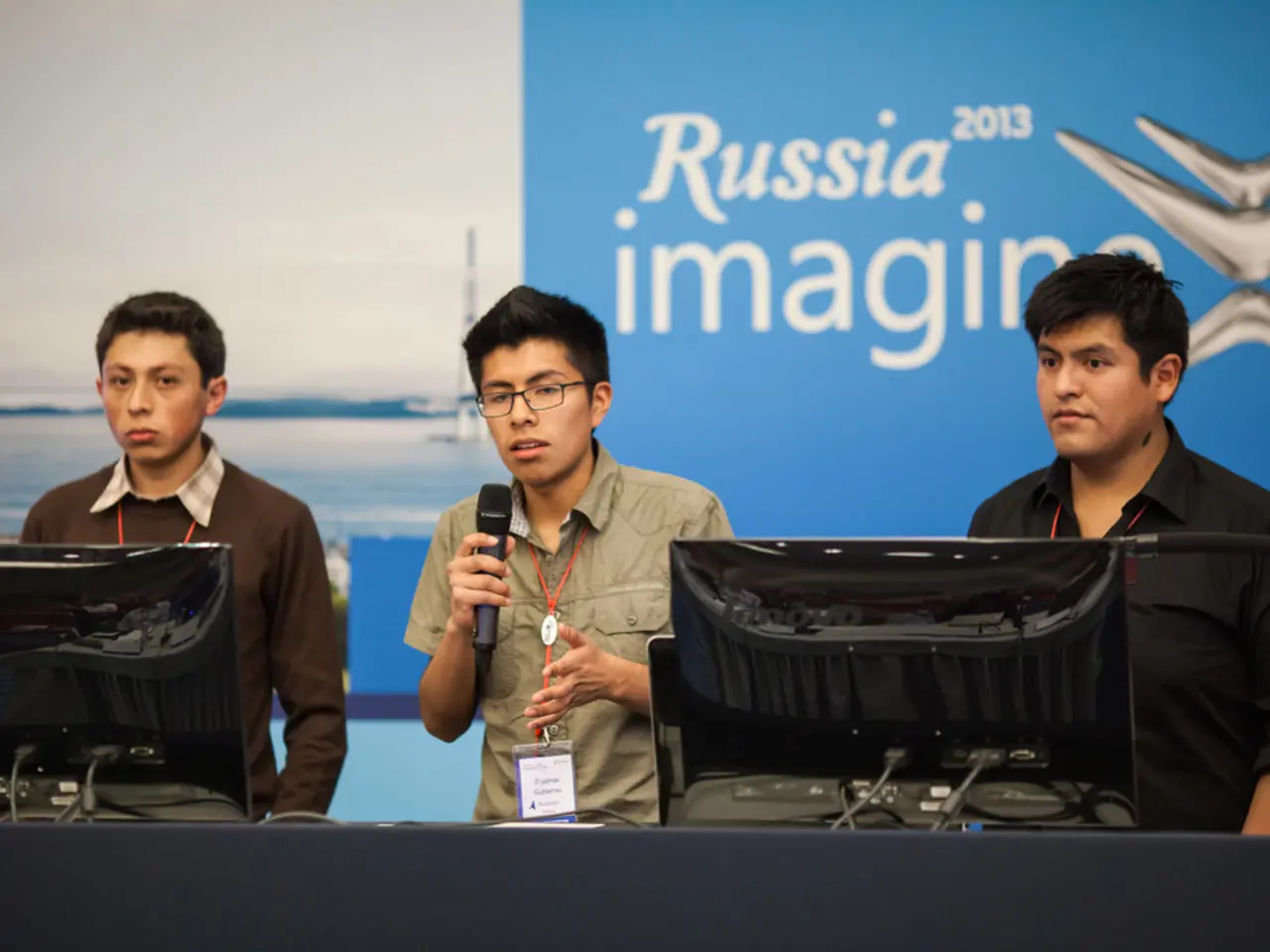Berlin secures a piece of jewelry from the fair
The city of Berlin is set to expand its congress facilities with the construction of a new multifunctional conference center, aiming to maintain its global position as a leading congress city. The new venue, scheduled to be built at the current site of Hall 9 on the Berlin Exhibition Grounds, will offer around 12,000 square meters of space designed to accommodate conferences, meetings, and trade fair formats, focusing on the mid-sized segment where Berlin currently has capacity constraints[1].
The new congress hall will feature retreat rooms, meeting rooms, and space for exhibitions, as well as a Japanese garden for participants to stroll during breaks. Construction work is set to begin after the next Innotrans fair in September 2026 and is expected to be completed by autumn 2028[1].
Dr. Mario Tobias, CEO of Messe Berlin GmbH, emphasized that the additional capacity is critical because Berlin is under-served in this market segment. Leading global conference cities are investing precisely in this kind of expansion to cater to growing demand, and Berlin aims to maintain its competitive edge internationally[1].
Berlin's congress and event market is thriving, generating around €1.4 billion in revenue in 2024, with expectations of continued growth in 2025. The new Hall 9 will support this economic momentum and meet surging demand for congress space in Berlin[2].
In addition to the convenience of the S-Bahn being located right at the door of the new congress hall, the city of Berlin aims to maintain its global position among the top 5 cities for congresses. The Senate and the supervisory board support the project, and a decision about the location and timing for the second congress hall will be made in the fall[1].
The urgency of this expansion is underscored by recent statistics: in 2024, 70% of Berlin's event market consisted of business-related events like conferences and meetings, with over 60,000 business meetings held involving roughly 9.1 million participants. The international share of attendees is growing above average, signaling strong global interest in Berlin as a congress destination[1].
It's worth noting that Berlin is one of only six federal states that are in the black, and the exhibition business in the city saw a 3% increase last year, which is above average. Occasionally, requests for events in Berlin have to be turned down due to setup and breakdown overlaps, highlighting the need for additional congress space[1].
Other cities are heavily investing in the area of congresses, and Berlin aims to stay ahead of the curve by expanding its facilities. A congress guest spends around 350 euros in the city daily, making the economic benefits of hosting congresses significant for the city[1].
Economics Senator Franziska Giffey (47, SPD) expects economic growth of more than 1% across all sectors for the current year, and the tourism chief believes that Berlin cannot afford to miss out on the economic benefits of hosting congresses[1].
References: [1] Messe Berlin (2023). New multifunctional conference center planned for Berlin. Retrieved from https://www.messe-berlin.de/en/press-releases/new-multifunctional-conference-center-planned-for-berlin.html [2] Statista (2023). Berlin's congress and event market revenue. Retrieved from https://www.statista.com/statistics/1169229/berlin-congress-and-event-market-revenue/
The expansion of Berlin's congress facilities, including the construction of a new multifunctional conference center, is strategic to cater to the growing demand in the global business conference market. The new venue will offer sufficient space for conferences, meetings, and trade fairs, particularly in the mid-sized segment, where Berlin is currently experiencing capacity constraints.




